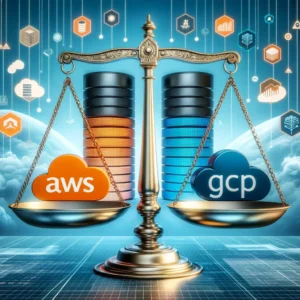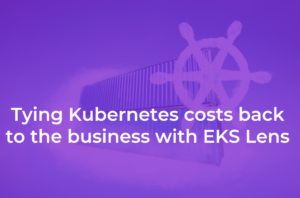The cloud is enabling businesses to reach ever-higher levels of innovation, agility and efficiency. So where is it headed next?
Developments such as containers, machine learning (ML) and serverless computing have shaped the future of cloud computing and helped cloud services to vastly expand their capabilities. And while these technologies continue to influence the scope and direction of what is possible in the public cloud — Amazon announced enhancements around commodity machine learning at its most recent re:Invent, for example — new developments are ready to stretch the boundaries of what is possible in the cloud.
So what are the emerging trends in cloud technology, and what are their implications for those who use the public cloud?
Cloud-managed 5G networks on-premises
The benefits of cloud computing are clear, but some enterprise applications must remain on-premises for business, legal and technical reasons. However, enterprise networks are under pressure to manage ever-increasing workloads. Using wired ethernet networks is prohibitively expensive, and traditional enterprise WiFi does not offer sufficient performance, reliability or coverage.
One answer is to combine cellular 5G technology with mobile edge computing (MEC). Managing a high-performance private 5G network with on-premises cloud computing creates previously unimaginable opportunities for large enterprises where high-speed, high-capacity, low-latency connectivity is vital. The Industrial Internet of Things (IIoT) is one sector where cloud-managed on-premises 5G networks offer the greatest potential benefits.
Customers can build private cellular networks to leverage the technological benefits of 5G while maintaining the security and granular application and device controls of a private network.
Use cases include smart manufacturing facilities and support for business-critical augmented and virtual reality (AR/VR) applications.
Among the main cloud providers, Amazon offers AWS Private 5G as a managed service that streamlines the deployment, operation and scaling of private cellular networks, with all the hardware and software provided by AWS.
Cloud-managed contact centers
Cloud-based contact centers (formerly known as call centers) store data in the cloud and facilitate customer communications via the internet, instead of depending on on-premise hardware.
Core technologies for a cloud call center generally comprise the automatic call distributor (ACD) and the interactive voice response (IVR) system. Other possible modules include workforce management and analytics. As with many cloud-based solutions, the key benefits of a cloud call center revolve around the freedom they give businesses to focus on serving their customers rather than on the technology they need to do it.
These benefits include:
- Easy integrations with other business applications, such as a CRM, by simply adding a new integration module
- The scalability required to cope with seasonal variations in call volume – without having to invest in additional hardware and software for peaks in demand
- The ability to employ agents in their homes because all they require is a reliable internet connection
- A superior customer experience due to the personalization and seamlessness made possible with cloud-based technology
- Better working conditions for customer service agents, who can rely on enhanced processes and data-backed, real-time intelligence
Access to quantum computing
Quantum computers use the principles of quantum physics to perform complex algorithm calculations and process massive datasets in quick time. These powerful computers can be used to encrypt electronic communication and help to bolster cybersecurity.
For highly complex problems, such as those encountered in fields including cybersecurity, chemical engineering and banking and finance, quantum computers create huge multidimensional spaces where they represent these extremely multifaceted problems. Solutions are identified using algorithms that employ quantum wave interference and presented in formats that humans can understand.
The cloud unlocks the power of quantum computing for developers who don’t have quantum computers, allowing them to test their quantum algorithms using classical computers. Developers can use a non-quantum computer to access the quantum machine image (QMI) – the virtualized programming and execution environments designed to develop and run quantum software applications – and the developed code is then executed on quantum virtual machines (QVM). The QMI processes information sent from the solution set to the quantum processing unit and delivers it back to the classical computer.
Effectively quantum computing as a service, cloud-based quantum computers offered by cloud providers give users access to different devices and simulators from their laptops. Quantum computing distributed over quantum networks thus has the potential to greatly enhance the computing power of quantum computers and even pave the way for the construction of a quantum computing cloud.
Kubernetes-enabled blockchain
Blockchain has become synonymous with cryptocurrency, but this revolutionary technology has a far broader range of applications. Essentially a shared digital ledger that logs data in a public or private network, blockchain is a system of recording information that is virtually tamper-proof.
The incentive mechanism of blockchain systems that rewards users for activities within the blockchain network makes it a key technology for tackling issues around the security and privacy of edge computing networks – devices that form the middle layer at the edge of the network, between cloud services and local devices. Blockchain technology can effectively manage the data authorization and data encryption of the edge network, enabling the implementation of more sweeping data security and management.
Many CIOs expect blockchain to fundamentally alter the cloud industry by offering information permanence, something current cloud capabilities cannot provide. With certainty around the location and access, overall cybersecurity is enhanced. However, current public blockchain infrastructure is not scalable for big data storage and management. That’s where Kubernetes comes in. Kubernetes is an open-source container orchestration platform that enables automatic scaling, deployment and management of containerized infrastructure. Using Kubernetes for blockchain means environments can be scaled quickly, with high availability assured by keeping multiple containers running for key services.
Other advantages of blockchain on Kubernetes include the potential for service interoperability between organizations with different architectures, simplified deployments and the capacity to upgrade. Deploying blockchain networks using Kubernetes clusters may soon become the standard of adoption, given that they address blockchain’s intrinsic complexity and the difficulties of integrating it into the existing infrastructure.
Where next
As enterprises continue to find new routes to growth and success through the public cloud, stakeholders are excited about what technologies will emerge to help the model evolve. From AI and IIoT to remote ways of working, almost every innovation relies on cloud computing technology to reach its potential.
And it’s not just about computational power, networking speed or storage capacity; these are merely operational metrics. What makes the cloud truly groundbreaking is the freedom and flexibility it gives organizations to achieve great things. After all, the true value of any technology is not what it’s made of, but what it allows us to do.








